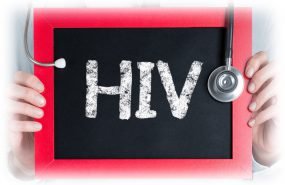United Nations HLM Political Declaration Zero Draft Released
- 10.05.2016 05:06
- Post Views: 1,553
- includes several key points that address gender and sexual and reproductive health
- states “that many national HIV-prevention strategies provide insufficient access to services for key populations that epidemiological evidence shows are at higher risk of HIV.”
- notes “the lack of global progress made in reducing transmission of HIV among people who inject drugs” and moreover identifies the “insufficient coverage of highly effective harm reduction programmes, the marginalization and criminalization of people who inject drugs which hamper access to HIV services,” and notes “with concern that gender-based stigma and discrimination often act as additional barrier for women who inject drugs to access HIV services.”
- notes that in Eastern Europe and Central Asia “new infections continue to increase, largely among people who inject drugs,”
- aligns with the Sustainable Development Goal #10 “Reduced Inequalities” – “Ensuring the rights of all people to access high-quality HIV services and commodities will narrow the inequalities gap within and among countries.” This point explicitly states the need to “ensure access to tailored HIV combination prevention services to key populations.”
- aligns with the Strategic Development Goal #16 “Peace and Justice” – “Removing punitive laws, policies and practices that block access to HIV services and ending HIV-related stigma and discrimination will promote just, peaceful and inclusive societies.”
- Provide direct feedback to UN mission delegations in New York City. (through in-person meetings in New York City and via requests for email and phone conversations with local country delegates).
- Provide direct feedback via local civil society to government ministries in country capitals. (e.g. Ministry of Health and/or Ministry of Foreign Affairs, maybe some smaller ministries as well). It will be especially valuable to provide country-level data to ministries, such as data on key populations and gender and sexual and reproductive health from UNAIDS Country Progress reports.
- Consult with regional civil society partners, who have provided inputs for the HLM political declaration via “regional position statements.” ICASO has compiled them here.
Given the very tight timeline between the release of the Zero Draft today and the first negotiations that will occur at the UN next Monday, April 25th, we emphasize the crucial importance of reviewing the Zero Draft now, and following up with UN delegates, government ministries, and country- and regional-level civil society partners immediately thereafter. Make clear that crucial language in the Zero Draft of the HLM political declaration should be retained in subsequent negotiations between now and June.
First-round feedback and comments on the Zero Draft are due by this Friday, April 22 and can be sent via email to ICASO at HLM2016@icaso.org or anytime to Nadia Rafif, Director of Policy at MSMGF (nrafif@msmgf.org). To make this process easier ICASO has prepared a survey monkey questionnaire to get your opinions about specific paragraphs in the Zero Draft document. Please complete it before this Thursday, April 21st.
The scheduled dates for negotiations (“readings”) of the political declaration by UN member states are as follows:
April 25-26: 1st reading of Zero Draft
April 28-29: 2nd reading
May 18: 3rd reading (unofficial suggested date – still to be confirmed)
May 26: 4th reading (unofficial suggested date – still to be confirmed)
In addition, the co-facilitators Zambia and Switzerland will hold an informal meeting with civil society, the private sector and other stakeholders next Tuesday, April 26 from 8:30-9:45 EST, webcast live on http://webtv.un.org/live.
Related News
Get Engaged in the ‘UNAIDS Strategy Beyond 2021’ Development Process
UNAIDS is now in the process of developing its next Strategy for 2021 and beyond. The timeline for developing the Strategy was supposed to have started early this year, but it was hampered by the COVID-19 pandemic. It has now been extended to accommodate a longer consultation period to ensure a full and more meaningful […] Read moreRoundtable organized by Global Fund
On 26 May (Russian) and 27 May (English) at 10.00 am (Geneva time) Developing Country NGO delegation of the Global Fund Board and the Global Fund Secretariat are organizing the Roundtable “Responses to HIV and TB in times of COVID-19 – strengthening engagement with civil society and communities in Eastern Europe and Central Asia (EECA)” […] Read moreCOVID-19 lessons: what can make the HIV programs in the EECA countries more sustainable? (LIVE discussion)
On May 5, 2020, from 11:00 a.m. to 1:00 p.m. EST (UTC+3), Alliance for Public Health will conduct a special LIVE discussion will be held on opportunities to improve the sustainability of national HIV programs that have emerged in connection with COVID-19. Post Views: 933 Read moreServices for migrants and refugees from Ukraine – HIV/TB care with a focus on key populations
Due to the increasing flows of refugees from Ukraine because of Russia’s invasion of Ukraine, the EECA Regional Platform created a spreadsheet to fill contacts details of face-to-face and online services for refugees and migrants (with a focus on HIV/TB care and key population groups).
Regional Platform – EECA
This web-resource is a part of new regional communication and coordination project “Regional Civil Society and Community Support, Coordination and Communication Platform - EECA”, implemented by Eurasian Harm Reduction Association (EHRA).
Tags
See also
-
EECA’s Regional Platform monthly Newsletter #21, February 2026 26.02.2026 11:56
-
Webinar: Results of the 54th meeting of the Global Fund‘s Board 23.02.2026 10:24
-
EECA’s Regional Platform monthly Newsletter #20, January 2026 27.01.2026 12:58
-
Global Fund Eligibility List 2026 27.01.2026 11:19







